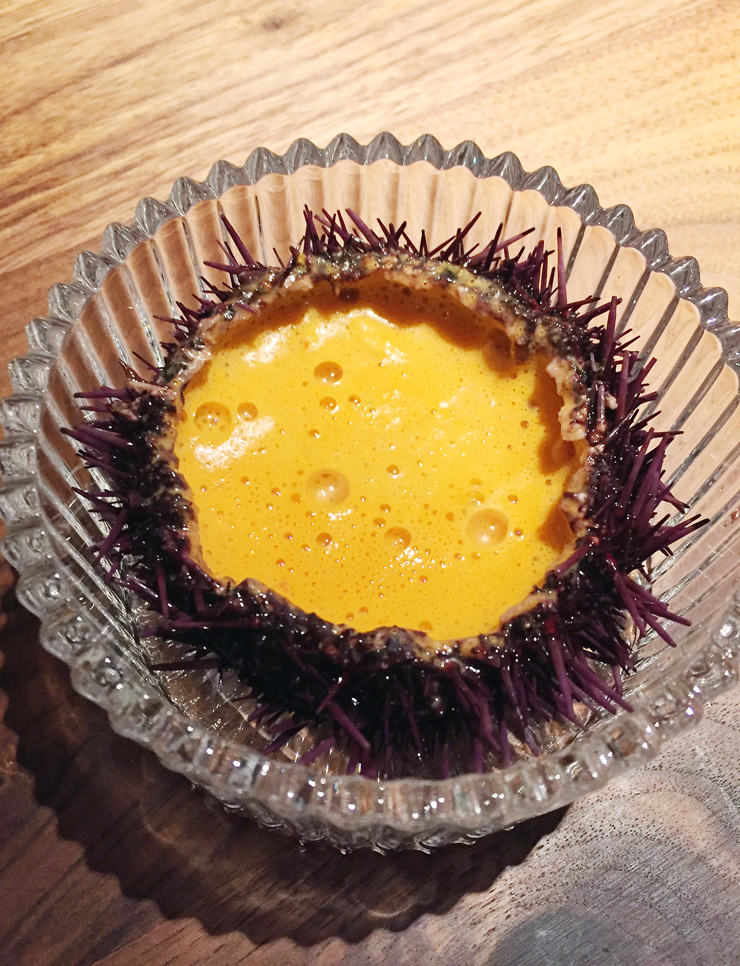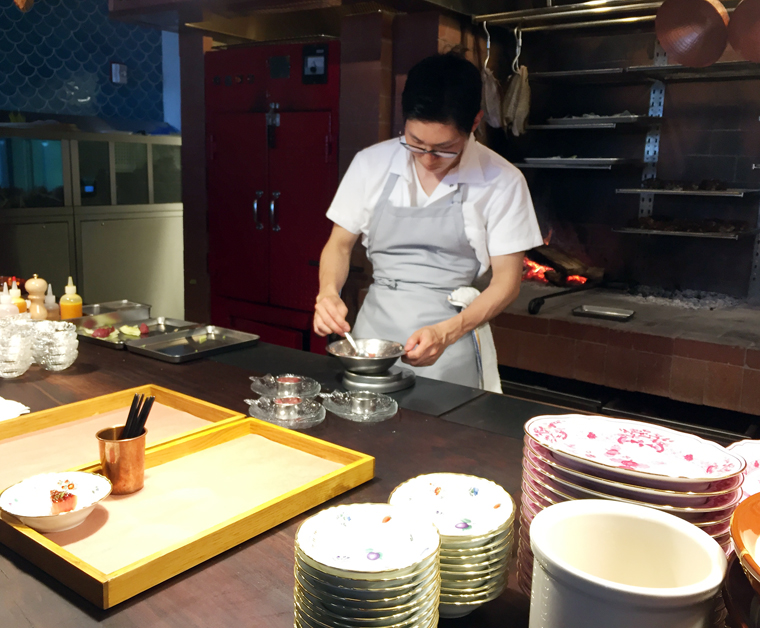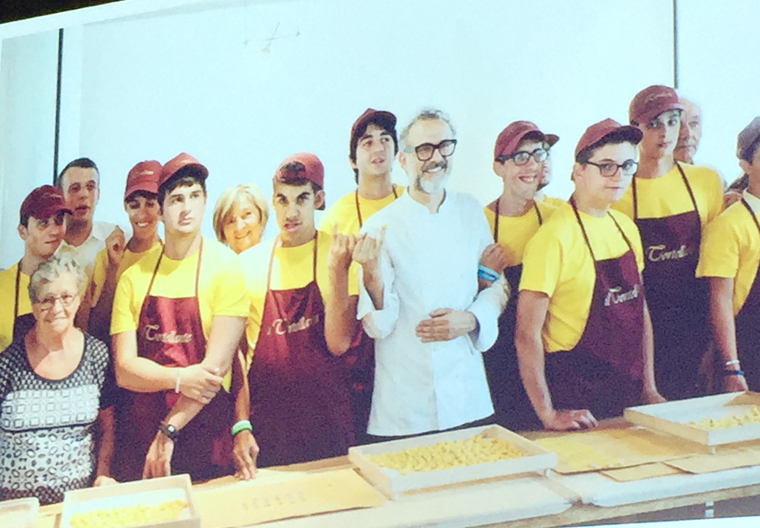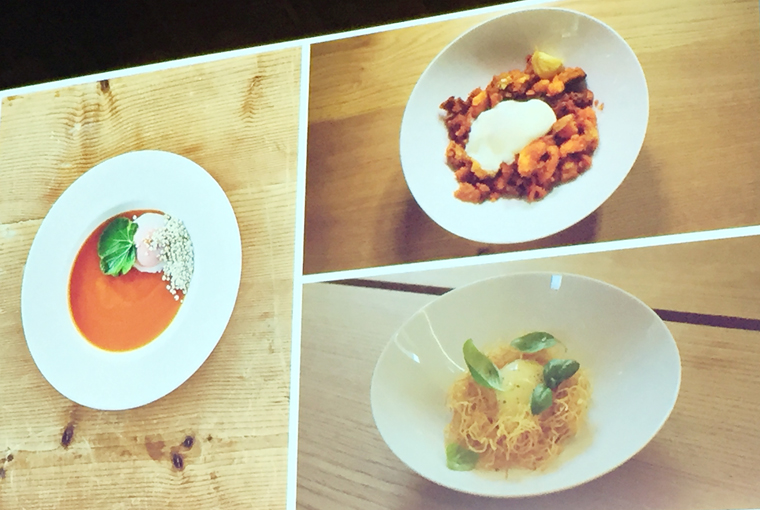#50 Best Talks Plus A Sneak Peak at the New Angler Restaurant
A who’s who of the chef world convened at Dogpatch Studios in San Francisco on Wednesday afternoon for “#50 Best Talks,” organized by — what else — “The World’s 50 Best Restaurants.”
If you follow Michelin rankings and are an avid watcher of Netflix’s “Chef’s Table,” you will easily recognize the names on this panel that was all about “Voices for Change”:
- Gaggan Anand of Gaggan in Bangkok, four-time #1 in “Asia’s 50 Best Restaurants.”
- Virgilio Martinez of Central in Lima, voted “Best Restaurant in South America” four times in a row in “The World’s 50 Best Restaurants.”
- Dominique Crenn of Atelier Crenn in San Francisco, voted “The World’s Best Female Chef 2016” by “The World’s 50 Best Restaurants.’
- Enrique Olvera of Pujol in Mexico City, currently #13 on “The World’s 50 Best Restaurants” list.
- Daniela Soto-Innes of Cosme in New York City, currently #15 on “The World’s 50 Best Restaurants” and winner of the James Beard Rising Star Award.
- Lara Gilmore of Osteria Francescana, currently #1 on “The World’s Best 50 Restaurants” list.
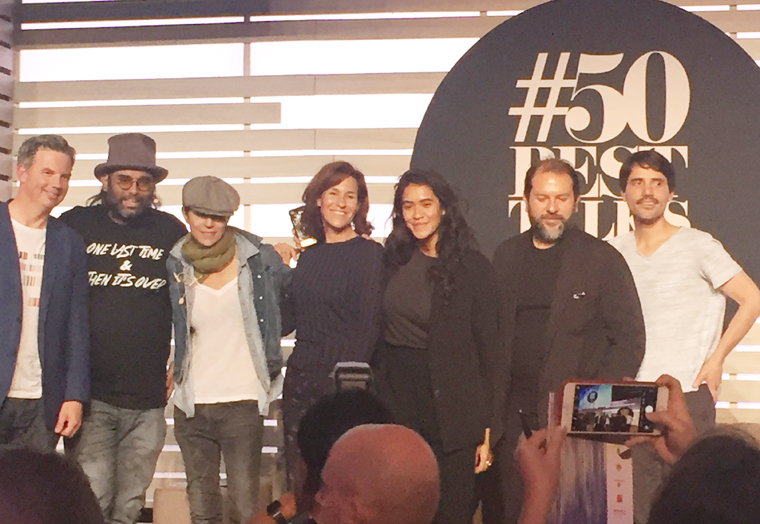
(Left to Right): William Drew, Gaggan Anand, Dominique Crenn, Lara Gilmore, Daniela Soto-Innes, Enrique Olvera, and Virgilio Martinez.
Afterwards, chefs and attendees headed over to Angler, set to open Sept. 25 on The Embarcadero in San Francisco.
It’s the second, more casual restaurant from Chef Joshua Skenes of Michelin three-starred Saison in San Francisco.
With the interior of a hunting lodge — complete with enough taxidermy to probably send animal rights protesters into a tizzy — it features fish tanks to hold the daily, sustainable catches from local fishermen.
It’s seafood as fresh as it gets. And fare far more elegant than your typical seafood joint.
Enjoy some morsels from the day:
No utensils needed:
At Gaggan’s restaurant, the three- to four-hour tasting menu features 25 courses — 22 of which are eaten with your hands. Inspired by Kiss’ “Lick It Up” song, he even created a dish of peas and fenugreek, in which it’s artfully spread on a plate that you indeed lick, as no utensils are given with it.
Who needs words?:
In response to people being glued to their phones, Gaggan even created a menu, in which there are no words or descriptions, just emojis. Yes, really.
Going the next step:
Martinez opened Mater Iniciativa in the Andes, a combination research center and 30-seat restaurant, to discover unknown ingredients and learn how to use them. “It has been incredibly rewarding for us,” he says. “We lose biodiversity every day. There is no time to waste.”
Pep talk:
Crenn tells her team at the restaurant regularly, “It’s not how good you are. It’s what you give to the world. Your identity is not your Instagram or your Twitter. Your identity runs through your veins. Don’t lie to people. Be who you are, and people will come to you.”
Timely topic:
Olvera, who has restaurants in Mexico City and New York City, will open a restaurant in Los Angeles in June 2019. As someone who travels between the U.S. and Mexico frequently, he can’t help but touch on the climate of the times. “Food migrates so easily,” he says. “It’s an easy and simple way to have a conversation that migration is good not just for food but for people and the world.”
Food can empower:
Gilmore and her husband, Chef Massimo Bottura started “Il Tortellante” in 2016, a program that pairs young people with special needs, particularly autism, with retired mothers and grandmothers who are expert pasta makers. The young people learn how to make tortellini, gaining confidence and skills in the process. The couple were inspired to do so because their son has special needs. In November, they will open a lab and store in Italy, where the public can buy the pasta.
“We started with just a handful of kids,” she says. “At the end of two hours, we divided up the pasta and each child got to bring some home. These kids not only were interested, they were good at it. It gave their families a different way to see their children, a different way to see their future.”
Food can be more than sustenance:
Gilmore also talked about another project under the couple’s Food for Soul non-profit. During Expo 215, they started a Refettorio community kitchen in Milan, in which Bottura and his chef friends used the food that would have otherwise gone to waste to make meals for the homeless and hungry. It was no ordinary soup kitchen, not when Michelin-rated chefs turned out 3-course meals that were served by volunteers.
They have since opened other community kitchens in Bologna, Modena, London and Paris. There is talk of opening one in the United States, too.
“A good meal in a beautiful space in a welcoming environment can change people, Gilmore says.
The food even inspired a cookbook, “Bread is Gold” (Phaidon), of dishes made in the community kitchen by chefs such as Ferran Adria, Joan Roca, Alain Ducasse, Rene Redzepi, and Daniel Humm.
“It is the anti-farm-to-table cooking,” she says with a laugh. “It’s looking for the unexpected, things that don’t look so good or might have been thrown away, which can be so stimulating for a chef.”
Why does the 50 Best List showcase only expensive, tasting menu restaurants, for the most part?:
“These are the best,” explains William Drew, group editor for “The World’s 50 Best Restaurants.” “By their nature, they are unlikely to be cheap.”

